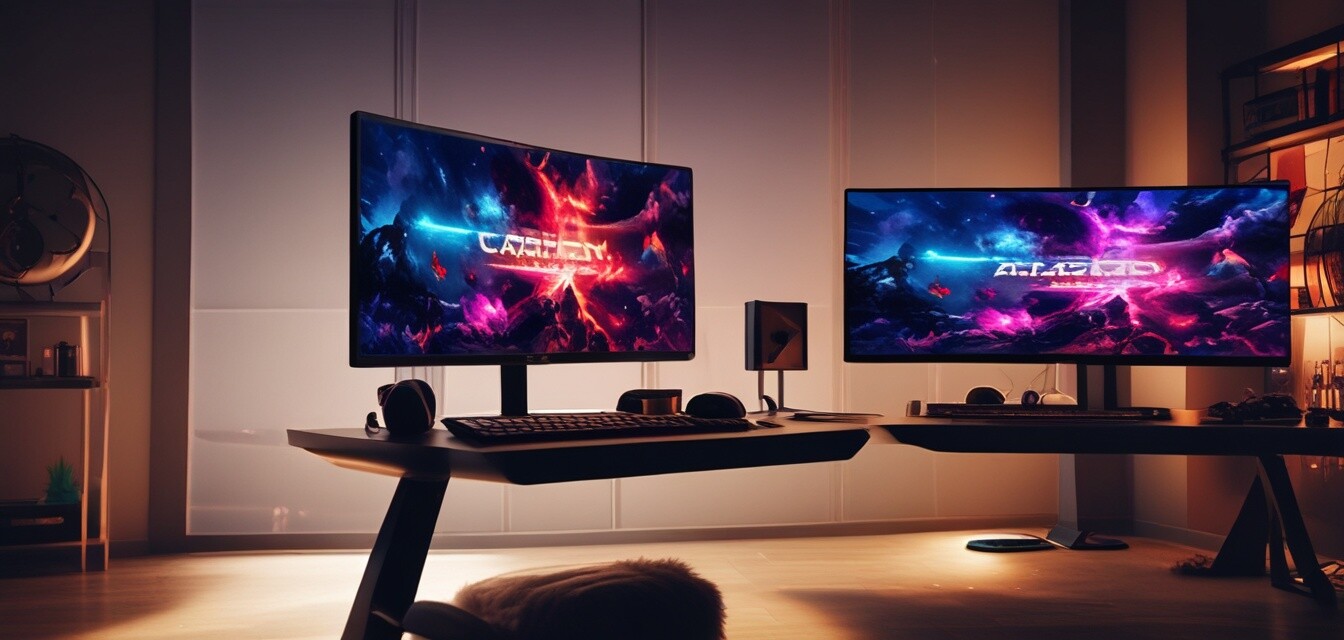
OLED Monitors vs. Traditional LCD Displays: Gaming Performance
Key Takeaways
- OLED monitors offer superior color saturation and contrast compared to traditional LCD displays.
- Response times for OLED are generally faster, making them ideal for competitive gaming.
- LCD monitors may be more budget-friendly but lack the same level of picture quality.
- Consider your gaming preferences and requirements when choosing between OLED and LCD.
- Research various models to find the perfect monitor for your gaming setup.
Choosing between OLED monitors and traditional LCD displays can be crucial for any gaming enthusiast. This comparison will delve into the gaming performance of each type, taking into account various factors such as color accuracy, response time, and overall experience. Let's find out which option is best for your gaming needs!
Understanding OLED and LCD Technologies
Before diving into gaming performance, it’s essential to understand how OLED and LCD displays work.
- OLED (Organic Light Emitting Diode): Uses organic compounds to emit light when an electric current is applied. This enables perfect blacks and a wider color gamut.
- LCD (Liquid Crystal Display): Relies on a backlight behind the liquid crystals to produce images. This limits the contrast ratio and can lead to less vibrant images.
Performance Comparison
Here’s a detailed table comparing the gaming performance attributes of both OLED monitors and traditional LCD displays.
| Feature | OLED Monitors | Traditional LCD Displays |
|---|---|---|
| Color Accuracy | Exceptional with deeper blacks and vivid colors | Good, but often less saturated |
| Response Time | 1ms or lower, ideal for fast-paced gaming | Typically 5ms to 10ms |
| Refresh Rate | High refresh rates available (up to 240Hz) | Standard rates around 60Hz to 144Hz |
| Contrast Ratio | Infinite contrast with true blacks | Limited by backlight technology |
| Viewing Angles | Wide viewing angles without color washout | Narrower angles may cause color distortion |
| Price | Generally more expensive | More budget-friendly options available |
Suitability for Different Gaming Styles
Both types of monitors have unique advantages depending on your gaming style:
- Competitive gaming: OLED’s fast response times and high refresh rates provide a competitive edge.
- Casual gaming: LCD displays can suffice for more relaxed gaming experiences.
- Immersive gaming: OLED monitors can offer a more captivating experience due to their superior picture quality.
The Cost Factor
While the performance of OLED monitors is generally higher, they do come with a heftier price tag. On the other hand, traditional LCDs offer a diverse range of price points, making them more accessible for budget-conscious gamers.
Consider checking our list of budget-friendly OLED gaming monitors if you want to explore the more affordable end of the market.Final Thoughts
The choice between OLED monitors and traditional LCD displays largely depends on your specific gaming needs and budget.
Pros of OLED Monitors
- Superior color contrast and vibrancy.
- Faster response times for competitive gaming.
- Better viewing angles.
Cons of OLED Monitors
- Higher price point.
- Potential burn-in issues with static images.
Ultimately, if your priority is stunning visuals and performance, an OLED monitor may be worth the investment. However, if you’re just starting out or looking for a more budget-friendly option, traditional LCD displays could meet your gaming needs adequately.
Where to Buy
For those interested in exploring various models, check out our category for 4K OLED gaming monitors which showcases high-end options fit for serious gamers.
Tips for Choosing Your Monitor
- Assess your budget before making a decision.
- Research gaming reviews to understand real-world performance.
- Consider the types of games you play most and choose a monitor accordingly.
By weighing all factors, you can confidently select the right monitor that aligns with your gaming preferences. Don't forget to keep an eye on our blog for more insightful product comparisons to find the best tech for your gaming setup!